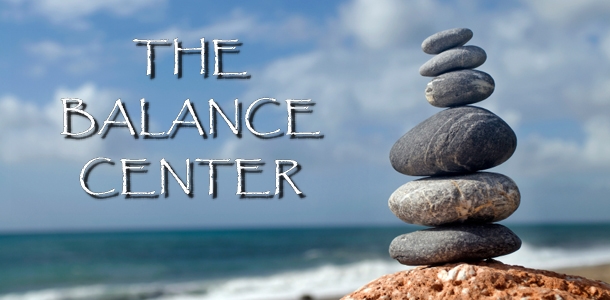“What we’ve got here is a failure to communicate.”
- 17
- April
- 2024

In case you’re not familiar with it, the above classic quote is from a movie in 1967 called ‘Cool Hand Luke’. Luke, played by Paul Newman, is on a prison chain gang. Luke hears this communication regularly from the prison warden when Luke get punished for not readily following the commands of the warden.
Hopefully, you haven’t been the recipient of punishment resulting from a ‘failure to communicate’. However, history has shown that a failure to communicate can have serious consequences, not only personally, but also on a global scale. Wars have started due to miscommunication, or a lack of communication, between differing nations.
Most of us have experienced negative consequences at some time that resulted from poor communication, either on our part or someone else’s part. Let’s explore the power of good communication and why connecting effectively is a key to success, not only personally and professionally, but even globally.
Communication is the foundation upon which all human relationships and interactions are built. It could be conversation with a family member or friend, a high-stakes negotiation in the boardroom, or global diplomacy between world leaders. Our ability to convey information, express ideas, and truly understand one another can mean the difference between failure or success, isolation or connection, and conflict or peace.
Yet effective communication is often easier said than done. We’ve all experienced the frustration of trying to get our point across, only to be misunderstood. Or the awkwardness of a conversation going off the rails, with each party talking past the other. And on a larger scale, poor communication between nations has led to geopolitical tensions, economic turmoil, and as we stated before, even war.
What contributes to poor communication? Sometimes it’s because people assume that there’s been clear understanding by the person, or people, to whom they’re communicating. Consider one tragic example that we remember happening almost 30 years ago. In 1986 we watched the Space Shuttle Challenger blow up during its launch, costing the lives of the 7 crew members on board.
After thorough investigation, the problem was traced to a simple o-ring, which the engineers knew had an issue. This issue had been communicated by the engineers to management. However, the problem was only communicated as part of a 200 page PowerPoint presentation to management. Unfortunately, no one on the management teams noted the o-ring issue – and tragedy resulted. George Bernard Shaw addressed this issue when he said, “The single biggest problem in communication is the illusion that it has taken place.”
So, what are some keys to becoming a good communicator? It starts with respect, actively listening, asking clarifying questions, and making a concerted effort to truly understand the other person’s perspective. This is important, because as legendary business tycoon Harvey Mackay once said, “The most successful people are the ones who are good communicators.”
What are some other hallmarks of great communication? One key point is the ability to fully focus on what the other people are saying, without formulating your own response in your head while they’re still talking. This not only helps you better understand their perspective, but also makes them feel truly heard and validated. As bestselling author Stephen R. Covey put it, “Most people do not listen with the intent to understand; they listen with the intent to reply.” We’re sure many of us can relate to experiencing that dynamic when communicating with others.
Great communicators also ask thoughtful, open-ended questions to gather more information and uncover hidden needs or concerns. They speak clearly and concisely, avoiding jargon and ambiguity. And they’re attuned to both verbal and nonverbal cues, picking up on subtle shifts in tone, body language, and emotional states. Management consultant, Peter Drucker once said, “The most important thing in communication is to hear what isn’t being said.”
Ultimately, the power of communication lies in the ability to build connections, foster collaboration, and create shared understanding – whether it’s between two individuals, two companies, or two nations. As the world becomes increasingly interconnected, our capacity to communicate across cultural, linguistic, and ideological divides will only grow in importance.
What about you? Are there areas in your life where you would like to have better communication? If so, consider using some of the ideas we mentioned. Also, we encourage you to communicate with us about what life lessons are important to you. By making the effort to truly understand and connect with one another, we can unlock new possibilities for growth, innovation, and peace. The future of our personal, professional, and global relationships may very well depend on it.
Chanhassen MN residents, Doug and Lynn Nodland are success coaches and owners of The Balance Center in Excelsior. Contact them at WeCare@TheBalanceCenter.com
© Doug and Lynn Nodland 2024 Articles and videos may be shared in their entirety with attribution.
Search:
Categories
Archives
- April 2024
- March 2024
- February 2024
- January 2024
- December 2023
- November 2023
- October 2023
- September 2023
- August 2023
- July 2023
- June 2023
- May 2023
- April 2023
- March 2023
- May 2021
- April 2021
- March 2021
- February 2021
- January 2021
- December 2020
- November 2020
- October 2020
- September 2020
- August 2020
- July 2020
- June 2020
- May 2020
- April 2020
- March 2020
- February 2020
- January 2020
- December 2019
- November 2019
Contact Us
Doug Nodland J.D.
684 Excelsior Boulevard
Suite 120
Excelsior, MN 55331
952-452-2664
WeCare@TheBalanceCenter.com

